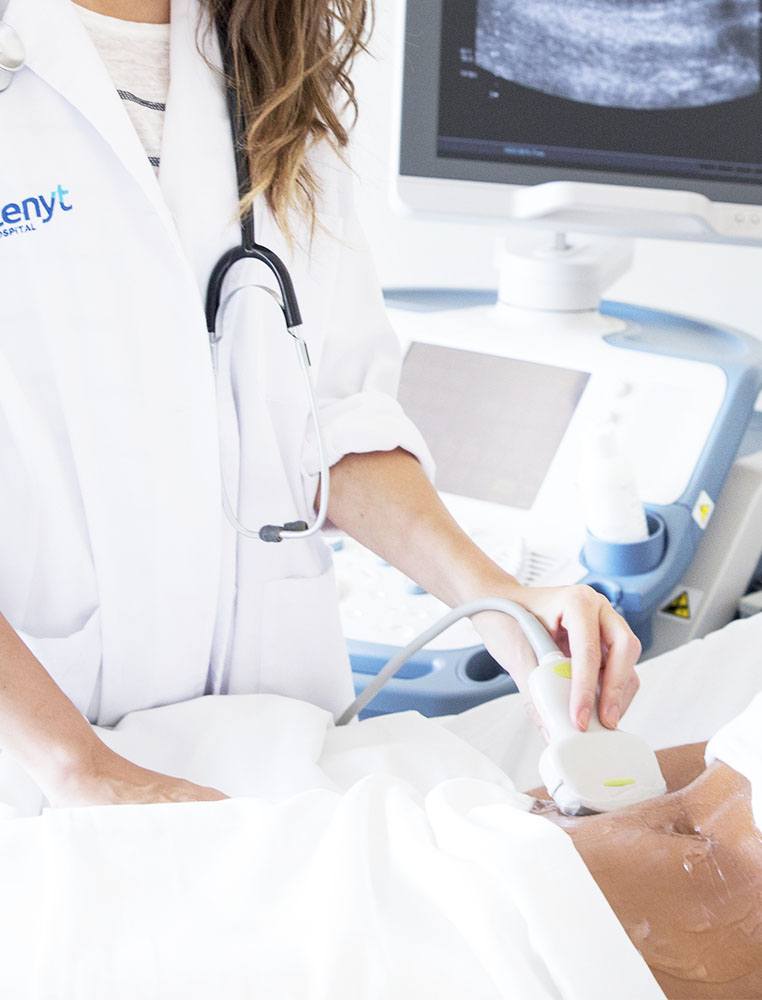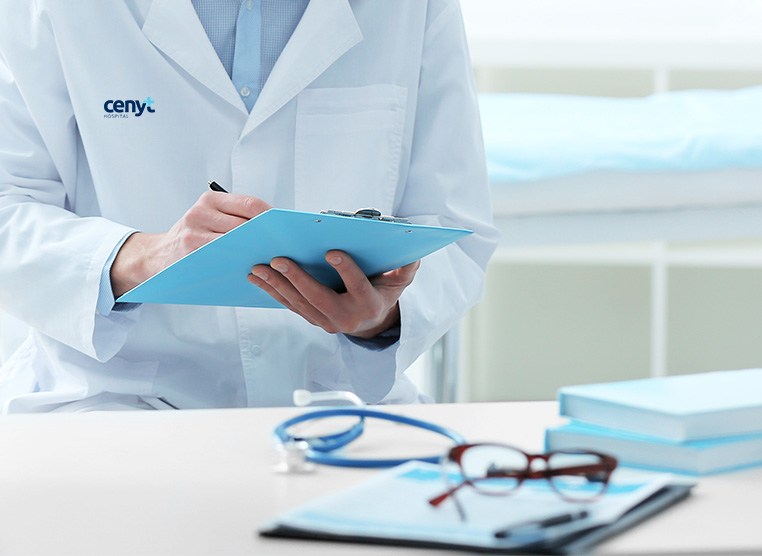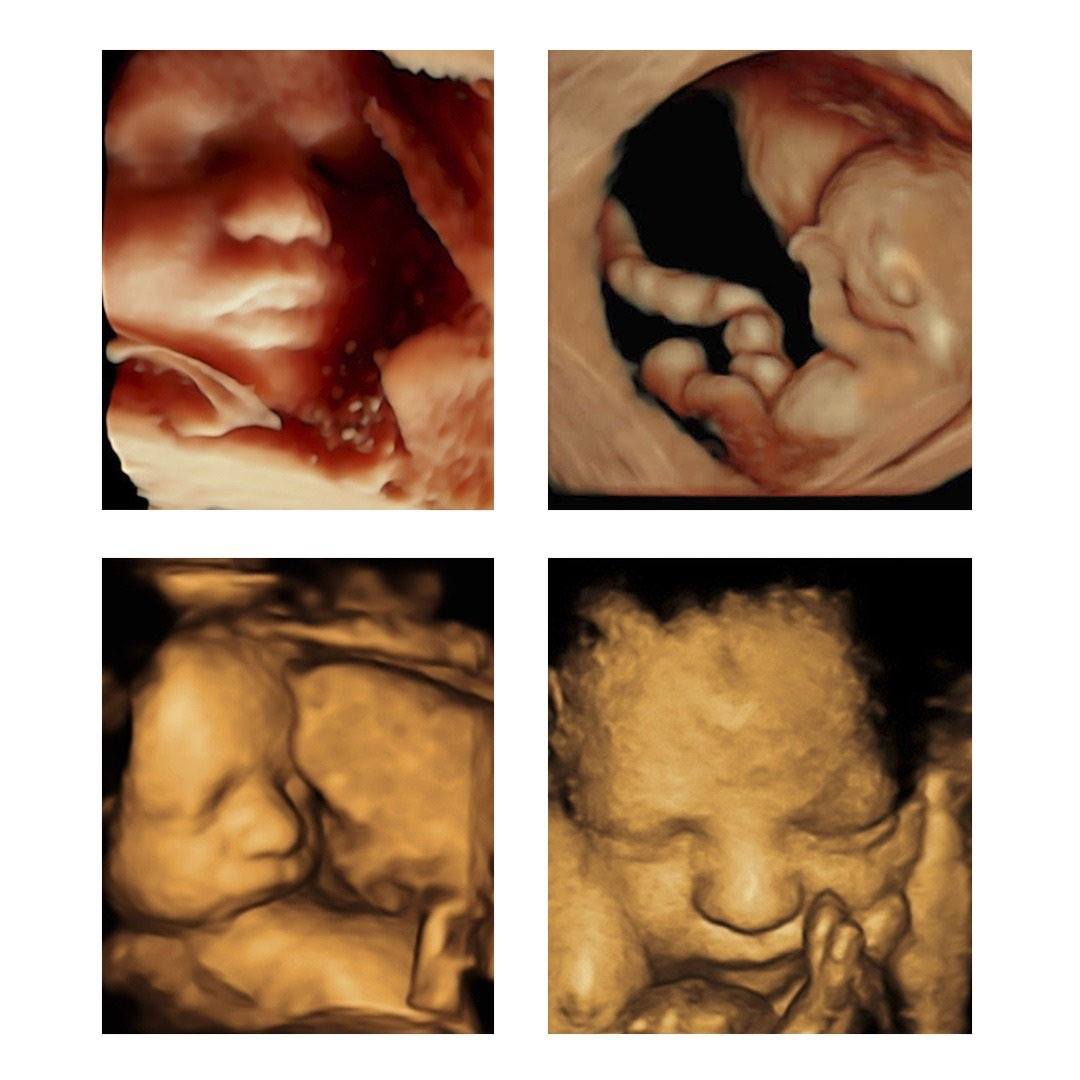- (+34) 952 80 81 00
- Avda de Andalucía, 2 y 4 Estepona (Málaga)

Once the pregnancy has been confirmed, it is recommended to carry out the first prenatal visit around Week 7 – 8 from the date of your last period. It is not a good idea to go before because you may not see the embryo yet or hear heartbeat.
In this first visit, important measures are taken such as your weight and blood pressure, factors that will continue to be monitored periodically throughout the pregnancy. It is also possible to tell you the approximate date of childbirth and to assess the risk of pregnancy according to your medical history.
Two complementary tests are carried out:
It is possible to visualize the embryo and check its vitality, estimate its time of gestation and see if there are pathologies such as ectopic pregnancy (out of place) or threat of abortion.
It verifies important information such as the absence of anemia, the discarding of infectious diseases or immunity from diseases that may affect the health of the baby.
Before you get pregnant, it is highly recommended to ask for an appointment with your gynecologist. In this preconceptional visit the doctor gets information about your state of health and a series of tests are carried out to confirm that you are in the best conditions to conceive.
It is important to make sure that you are immune to certain types of pathologies such as rubella or chickenpox because if you get any of these illnesses during pregnancy, the fetus could suffer major malformations.
In addition, to greatly reduce the chances of the baby suffering serious pathologies such as Spina Bifida or Hydrocephalus, it is recommended to start taking Folic Acid about 4 months before gestation.


At this stage the evolution of gestation is checked, an ultrasound is performed that allows to know among other things the gender of the baby and blood test of second trimester is requested.
The time has come to perform the morphological ultrasound of the 20th week. This is undoubtedly the most important ultrasound of pregnancy since you see the organs of the fetus and can diagnose many malformations. However, it is important to understand that it is a test that cannot rule out 100% of the absence of diseases.

4D Ultrasound Scan – Voulson E8: Expert Ultrasound Equipment
This visit takes place the screening test or screening of the first quarter. The information obtained from the ultrasound performed in this visit along with the blood test of the first trimester, determine the chances of the baby suffering from a chromosomal anomaly like Down’s Syndrome.
It should be considered that it is not a diagnostic test whose veracity is absolute. We speak only about probabilities. To have a reliability of 99% in the detection of Down`s Syndrome, in Cenyt Hospital we offer the Harmony Test which is performed through a normal blood extraction and avoids the characteristic risks of invasive tests such as amniocentesis.

From week 20, we usually recommend a visit every 4-5 weeks to assess the growth of the fetus and go requesting the relevant blood tests and other corresponding tests.
Among them is the test of sugar (O ‘ Sullivan test) that allows to discard a gestational diabetes or vaginal and rectal exudate that aims to detect bacteria in the birth canal that could affect the baby at the time of childbirth.
It should be noted that this is a summary of the control of gestation in general. If any problems occur, the patient has a risk pregnancy or some important pathology, a different control would be performed.
Do not forget that in Cenyt Hospital you expect a great team of specialists in obstetrics and gynecology and we are at your disposal to clarify any questions that arise.
